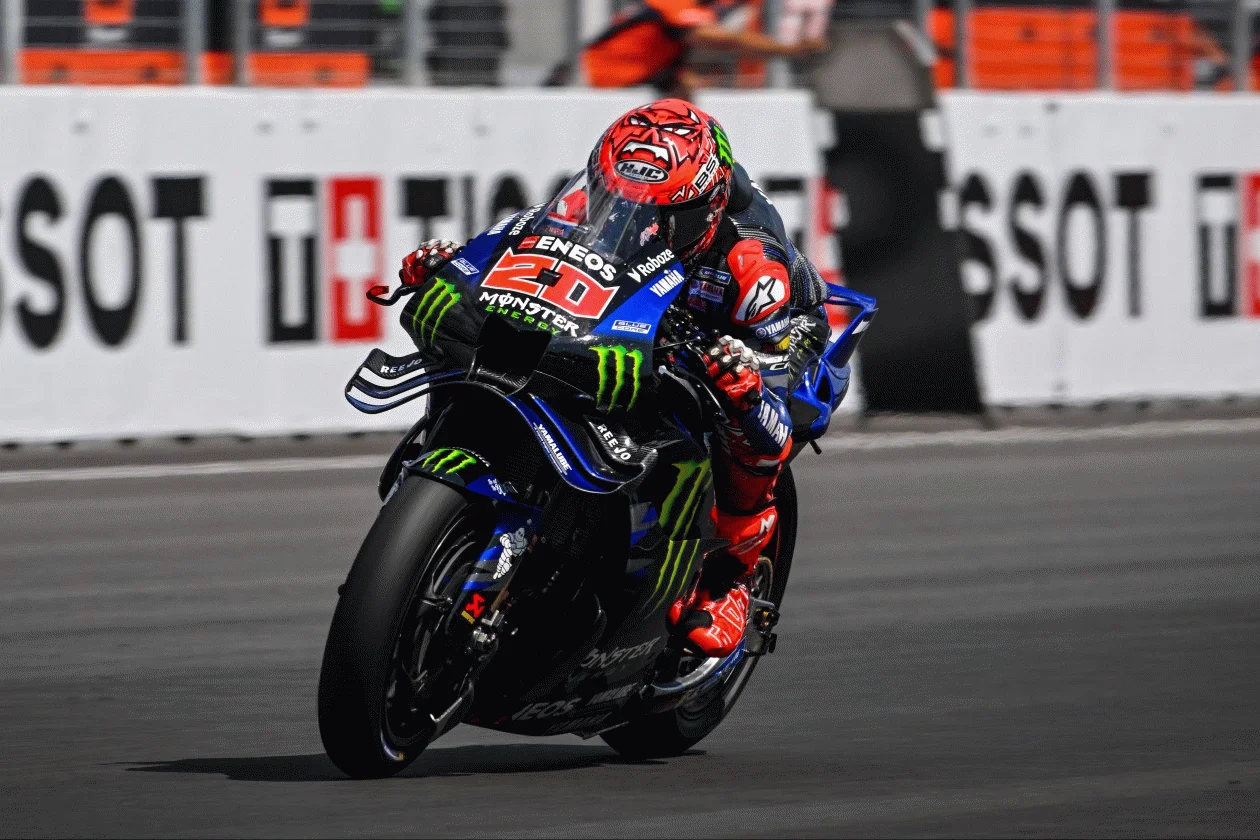MotoGP’s leading constructors have joined forces to negotiate a fresh financial framework with promoter Dorna, aiming to claim a larger portion of the championship’s commercial income. This collective move emerged from a meeting held during the Czech Grand Prix weekend, involving all five major manufacturers and their agreement to push for a new distribution model.
The constructors appointed Lin Jarvis, former Yamaha director and current advisor, as their official spokesperson, while Massimo Rivola, president of the Manufacturers’ Association (MSMA), also played a key role. Together, they presented their request for renegotiating financial terms to Carmelo Ezpeleta, CEO of Dorna, reflecting a shared desire to revisit how revenue is allocated within the sport.
Manufacturers Seek Agreement Modeled on Formula 1’s Concorde Contract
The manufacturers are looking to establish a document similar to Formula 1’s Concorde Agreement, which effectively governs the distribution of revenue among F1 teams based on sporting results and commercial contributions. Though the specifics of F1’s contract remain confidential, it is widely known that prize money varies significantly according to teams’ end-of-season rankings, with financial differences running into millions of euros.
The current MotoGP agreement expires in 2025, and while a new five-year contract has been signed through 2030, the manufacturers are pushing to insert principles that align more closely with F1’s system. This includes a merit-based distribution model and a clearer connection between championship performance and financial rewards.

Historically, the Concorde Agreement arose from intense conflict within F1, resolving a standoff between the Federation Internationale du Sport Automobile (FISA) and the Formula One Constructors’ Association (FOCA), with Bernie Ecclestone playing a crucial role in restructuring the sport’s commercial framework. The MotoGP manufacturers aim to avoid such extremes by opening dialogue early.
Key Issues: Financial Distribution and Grid Slot Ownership
The manufacturers’ demands focus on two major issues essential to the sport’s long-term growth. First is the need for an improved financial share from commercial rights. Presently, only satellite teams receive a guaranteed fixed income of €2.5 million per leased bike, totaling €5 million, while factory teams lack equivalent security.
Second, the ownership of grid slots—the licenses allowing teams to participate in the championship—represents a critical matter. Currently, Dorna maintains legal ownership over these slots and grants them on fixed terms, most recently for five years ending in 2026. Teams are advocating either for full ownership of these slots or for contractual guarantees that provide greater autonomy in their strategic and operational decisions, reducing total reliance on Dorna’s discretion.
The Impact of Liberty Media’s Acquisition on Negotiations
This push by the constructors follows the recent takeover of Dorna by Liberty Media, the same company that owns Formula 1’s commercial rights. Valued at approximately €4.3 billion, the acquisition stipulated that Carmelo Ezpeleta would continue as CEO. Given Liberty Media’s experience with the highly commercialized F1, manufacturers see potential for adopting a similar commercial model.
The move has also increased interest from private investment funds in acquiring independent MotoGP teams. However, Dorna’s current valuation of teams at roughly €20 million each is seen as problematic, as the promoter’s control over grid slots limits teams’ asset value and financial leverage within the championship. This dynamic underscores the manufacturers’ desire for a more balanced and transparent financial and organizational structure.
Anticipated Progress and Future Negotiations
Dorna’s initial reaction to the manufacturers’ unified stance was reportedly unfavorable, though the constructors expected this and are now seeking a compromise. Negotiations are likely to continue at upcoming race events, with the next opportunity expected during the Austrian Grand Prix in August. This ongoing dialogue could redefine the commercial relationship between MotoGP’s rights holder and its key racing entities.
As the sport continues to expand and evolve under new ownership, the outcomes of these discussions will be crucial for the manufacturers’ financial security and influence within MotoGP. Aligning team rewards more closely with championship performance and granting greater control over participation rights would mark a significant shift in the sport’s governance and business model, potentially attracting further investment and fostering sustainable growth.
“Our collective desire is to revisit the distribution of the financial assets generated by the championship.” —Lin Jarvis, Manufacturers’ Spokesperson
“Negotiations will likely resume soon, and we hope a compromise can be reached.” —Massimo Rivola, MSMA President
“The current values assigned to teams do not reflect their true potential under the existing ownership of grid slots.” —Industry Insider
Our Reader’s Queries
Q. Why is MotoGP not so popular?
A. The unfortunate truth is that entertainment often attracts more interest than sports. MotoGP is attempting to profit from this trend. However, the sport lacks the personalities needed to make it exciting and dramatic.
Q. Has anyone won F1 and MotoGP?
A. John Surtees is renowned for being the sole World Champion in both motorcycle racing and Formula 1. He demonstrated equal talent and courage in both sports.
Q. Did F1 buy MotoGP?
A. Liberty Media, the owner of Formula 1 commercial rights, is now able to acquire the MotoGP motorcycle world championship. This follows unconditional approval from the European Union’s European Commission executive branch.
Q. Is MotoGP cheaper than F1?
A. The Ministry of Youth and Sports shared that hosting a Formula One event costs four times more than a MotoGP race. Additionally, organizing a MotoGP event is less expensive than Formula E.
